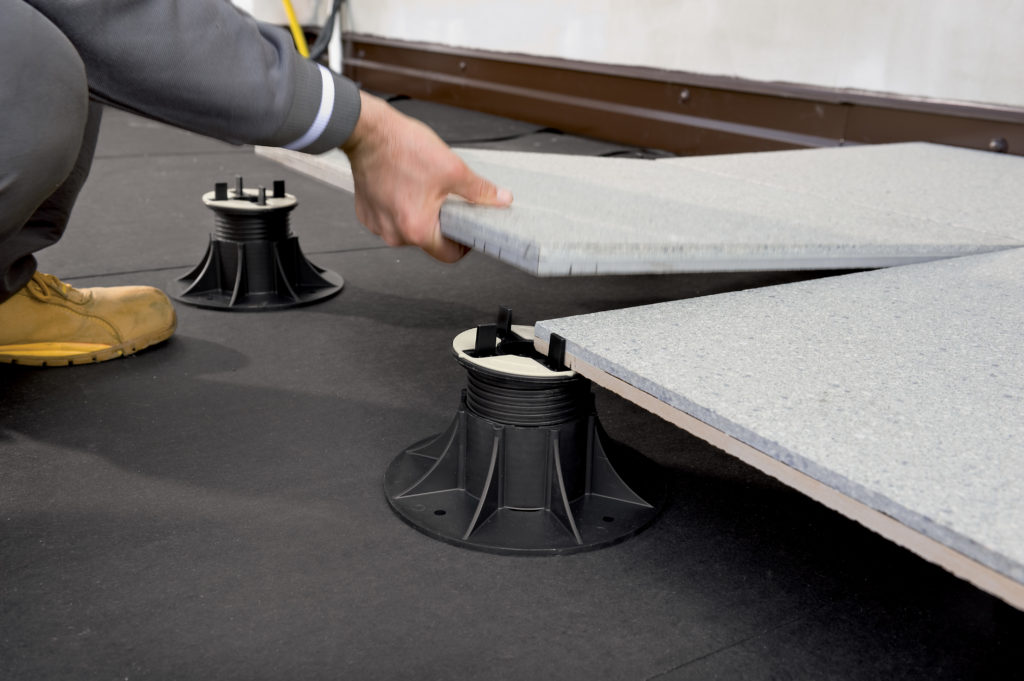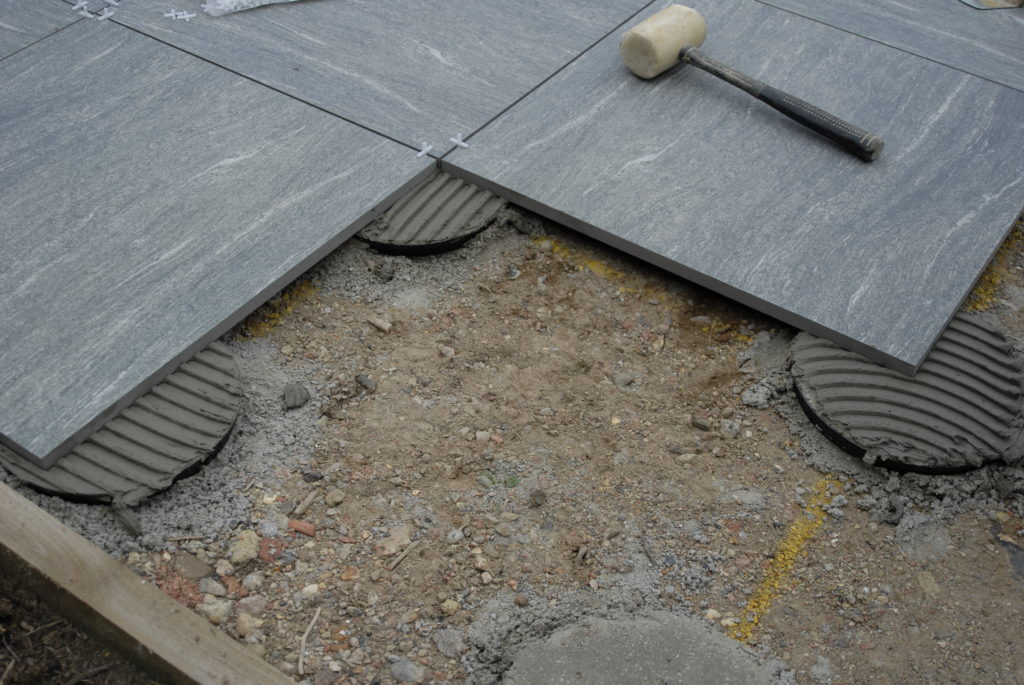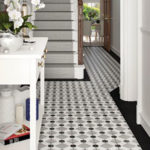Why You Shouldn’t Fix External Porcelain Tiles Into A Wet Bed
When installing stone or concrete paving slabs the traditional method is to create a wet mix sand and cement bed. This would be emptied onto a prepared sub-base and spread to a thickness of 50-75mm thick. The concrete or stone slab would then be bedded down in the mix and tapped down to meet the required levels. This type of fixing method is now being employed to fix porcelain slabs, with mixed results.
There are several potential problems that can occur when fixing porcelain slabs into a wet bed mortar mix. Porcelain tiles are a vitrified product, which means they are non-absorbent. A wet bed mortar needs an absorbent surface to adhere to so it will not stick to porcelain, with the risk that the porcelain tiles will de-bond and the patio will fail. This problem can be overcome by mixing a polymer admix to the mortar, or applying a polymer slurry coat to the back of the slab. Unfortunately, a lot of mortar admixes and primers are of variable quality or not designed to be used with porcelain, so failures could still occur. It is also critical that suitable admixes are mixed to the correct proportions which commonly does not occur on site. The unfortunate truth is that fixing porcelain tiles with a wet bed mortar system is inviting a future failure.
The second problem relates to the finished aesthetic. Porcelain tiles are engineered products with much tighter sizing tolerances than stone or concrete. The surface textures of porcelain will also tend to be much more uniform. Customers are looking to use porcelain to provide a more contemporary look with typical joints of 3-4mm as opposed to 8-12mm which is common with a lot of stone and concrete projects. When laying concrete or stone where the slab surface is commonly riven and a joint of perhaps 10mm it is easy to ‘lose’ minor height differences between slabs. However, when fixing engineered porcelain with a narrow joint a minor height difference between slabs stands out as a very unattractive lipping problem. It is much harder and more time consuming to achieve a good aesthetic with porcelain using the wet bed system.
The wet bed system is also a fundamentally messier method of laying, with wet mortar covered fingerprints being left on the surface of the tiles. As soon as polymer admixes are used in the mortar, these fingerprints are going to become much harder to remove from the slabs surface.
Finally, there is a trend growing to use porcelain slabs externally that are less than 18mm thick. Porcelain slabs of 18mm thickness and above are strong enough to span a void and will typically have a breaking strength of 1,000Kg. This makes them suitable for use on pedestals where they will be subject to foot traffic. The wet bed fixing system will often leave voids underneath tiles. This is not a problem where the tiles are thicker than 18mm and used in areas subject to foot traffic, however if fixing porcelain thinner than 18mm these voids could result in cracking, even for areas subject to only foot traffic.
We recommend using a solid base or pedestal system to install external porcelain tiles. A solid base requires a lot of materials and will add time to the project, so a pedestal system may be more convenient. Eterno Ivica self-levelling pedestals are perfect for balconies and roof terraces, and provide built-in drainage via the open joints. Cables can run underneath the tiled surface and the tiles can be removed at any time for easy access.

Eterno Ivica self-levelling paving support pedestals for external porcelain tiles.
For patios the new PorcelQuick system can be used to install external porcelain tiles. A series of adhesive pedestals are created using Adpeds and a mix of sharp sand & cement, tiles are then installed using adhesive once the pedestals have hardened. This system requires 80% less materials on average, and also provides an up to 80% reduction in carbon footprint. There’s no need for a messy primer and the joints can be grouted from 3-10mm using Grout Backer Rod.

Installing external porcelain tiles on to PorcelQuick Adpeds.
For more information about our range of external porcelain tiles or pedestal fixing systems please contact your nearest branch of The Tile Source or The London Tile Co..






